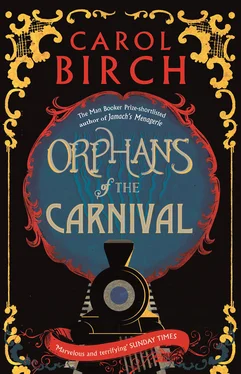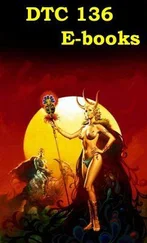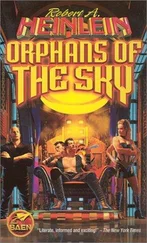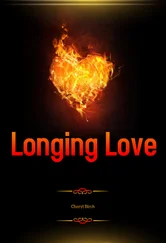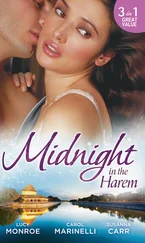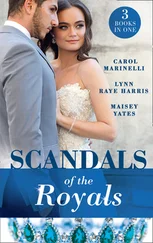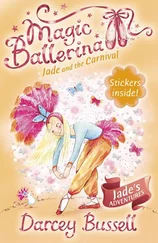Someone shouted, ‘LOUP GAROU’. She laughed. Her eyes twinkled, her smile was genuine. Now that she was on, she didn’t feel so bad. I’m looking at you, she thought. You are looking at me. And you’re paying. The band played ‘La Llorona’. She’d sung it hundreds of times, it’s what she’d always done, and she sang it tonight with a certain lightness and spring that somehow accentuated its tragedy, walking up and down the front of the stage and peeling off her long white gloves, discarding them as she looked out into the sea of faces, meeting eyes boldly, as fascinated by them as they were by her. The crowd roared and waved its handkerchiefs, and it was such a glorious moment she thought she might faint.
The night before they left for New York there was cold ham and figs and a jug of wine, laid out on the table in the yard. Cato and Ezra Porter were heading for Knoxville in two more days, and other people were coming to stay in the shacks around the yard.
‘Going on a big train, Cato,’ Delia said, wafting the air with a palm fan.
Cato was sitting on the henhouse.
‘You and Cato,’ Julia asked Ezra, sipping her wine, ‘How did you come by each other?’
‘Found him near Pittsville, Alabama,’ Ezra said. ‘In a bar. Was with a man called Flynn who had fleas he used to feed on a big special vein he had running down the inside of his arm.‘
Cato’s bare heels drummed the side of the henhouse.
‘Cato, get down from there,’ said Ezra. ‘Poor stuff, it all was — you know — not even the midway, back of the midway, out of the midway, box on the sidewalk, tent thrown over three sticks, you know?’ He got up and traipsed over to the henhouse. ‘Someone brought Cato in the bar. This kid kind of pushed him in. Was scared, not like he is now. Me and Flynn sitting there and the bartender just staring, says, Jesus Christ, it’s some fucking freak. What the hell, get it out of here. And Flynn just about filling his pants. Didn’t bother me. They used to bring the freaks through every year where I grew up. I knew what he was.’
He took Cato’s hand. Cato pulled it away and walked along the ridge of the henhouse, arms outstretched.
‘Kid said he‘d been following him about like a lost dog and he didn’t know what to do. He’s been walking up and down all day just up the road, they shooed him away, and now he’s following me, he says, and I don’t know what to do. Look, he’s giving me the creeps. From the plantation most like, Bartender says. Better take him to the Sheriff. They don’t want him up there, the boy says. They put him out.’
Julia took her drink over to the swing, sat down and swung gently.
‘And I said, no,’ Ezra said, ‘people’d pay money to see him. And Flynn says I ain’t going anywhere with that thing.’
Loose-jointed, Cato jumped down and moved with his peculiar bent-kneed gait over to where Julia swayed under the apple tree.
‘So after that,’ said Ezra, ‘it was just me and Cato.’
‘Hoo-hah!’ Cato said, holding up his arms as if wanting to be picked up.
‘You want to swing?’ she said. ‘Shall I push you? You won’t scream, will you?’
He shook his head.
‘Come on then.’ She got down and put her drink on the ground and he clambered on with sounds of gobbled delight. As she pushed, he howled with joy and his thin bare feet kicked wildly.
‘Cato!’ she said, ‘You promised!’
Madame Soulie came out of the house carrying a banjo and sat down with the rest. ‘It’ll be very quiet around here tomorrow when you’re all gone,’ she said.
‘The new batch’ll be here before you know it,’ Rates said, peeling a fig.
Madame Soulie played ‘Rose of Alabamy’, slow at first.
‘I’m not pushing you, you’re too noisy.’ Julia said.
Cato got down.
‘I could play this once.’ Madame Soulie said, playing a little faster.
Cato lifted up his long skinny arms and swayed.
‘I will miss you, Cato,’ Julia said.
Duende , she thought. Goblin. I’m the loup garou . Jonsy’s a ghost. Arm in arm against a full moon sky, walking with the devil baby. ‘Dear little duende ,’ she said, and was struck with a momentary sense of belonging.

Rose was reading about an island in Mexico, the last resting place of hundreds of dolls.
‘Trouble is,’ said Laurie, ‘for you it’d be like going to Battersea Dogs Home. You’d want to bring them all home with you.’
Adam, hovering uneasily about with a slightly sneery look on his face, was wondering if he should leave. He’d been drinking tea and talking to her about M.R. James when Laurie just walked in and slobbed down with her on the sofa, taking over. Laurie wore an emerald-green velvet waistcoat over a naked brown torso, and his shoulders and arms, packed with veiny muscle, were tattooed to the wrist with swirly vines and plants and birds. There was an unsavoury reek about him, a whiff of the lower echelons of the entertainment industry, of amusement arcade back rooms.
‘No,’ said Rose, ‘I’d leave them there. They’re happy.’
‘Rose,’ said Laurie, ‘believes a lost sock misses its partner and weeps bitter tears for it.’
‘I do not.’
‘Yes you do.’
‘Of course I don’t believe it literally,’ she said. ‘Don’t try and make me look like an idiot.’
‘Don’t try and make her look like an idiot, Laurie,’ Adam repeated. He didn’t know why. It came out sounding nasty.
‘Will you all stop taking the piss?’ she said, sitting up and throwing the magazine down onto the rug. ‘Anyone wants to take the piss has to get out of my room.’
‘It’s OK, Rose,’ Laurie said, ‘we all know you’re mad, but we forgive you.’
Adam picked up the magazine. ‘Obviously this is where Tattoo should be,’ he said, looking at the pictures. The dolls were weirdly beautiful. Rose lay back against Laurie, whose large gnarly-knuckled hand slid round under her waist and began lazily kneading her stomach under her crumpled blue shirt.
‘Catch you later,’ Adam mumbled, went downstairs and grabbed his ancient Nikon, wandered out into the street and roamed about in the direction of the park. Every now and then he’d stop to take a moody shot of a pigeon or an empty bench. It was a sunny day, dust from the traffic got in his throat. He ambled along, going nowhere in particular, got bored and went back home, lay down with closed eyes listening to the radio still playing the same random pop music it had been playing to his empty room all afternoon. He lived in a tip of squashed paint tubes and discarded rags. Some days he’d get up and dressed and lie back down on his bed, doing nothing fiercely and tremulously till it was time to go to sleep again. After a while he drifted to sleep, drifted out again, drifted back upstairs. Laurie had gone. She was sitting in the middle of all her things. It was getting worse; the stuff was making the room too small.
‘Grab yourself a glass,’ she said. She’d opened a bottle of wine. He lay down on the floor. She fiddled about with some embroidery for one of her frames. A J.J. Cale album played softly. For a long time he stared at the ceiling.
‘You don’t really like him, do you?’ he said.
‘Let it go, Ad.’
‘His breath stinks.’
‘No it doesn’t.’
‘He’s an ugly fucker.’
‘Yeah yeah.’ Rose put down the embroidery, picked up her glass, took a long drink and poured herself another. Closed her eyes. God, it was tiring. Living. Knocking about the world alone, Bloody men, always wanting more. She didn’t want an us. Family stuff. Her own was far-flung and had never been demonstrative. She’d spent her teens and twenties falling in and out of love with a series of boys and men. Sometimes she counted them off in her head. They all ended. Feelings changed, nothing was certain, everything was threatened.
Читать дальше
